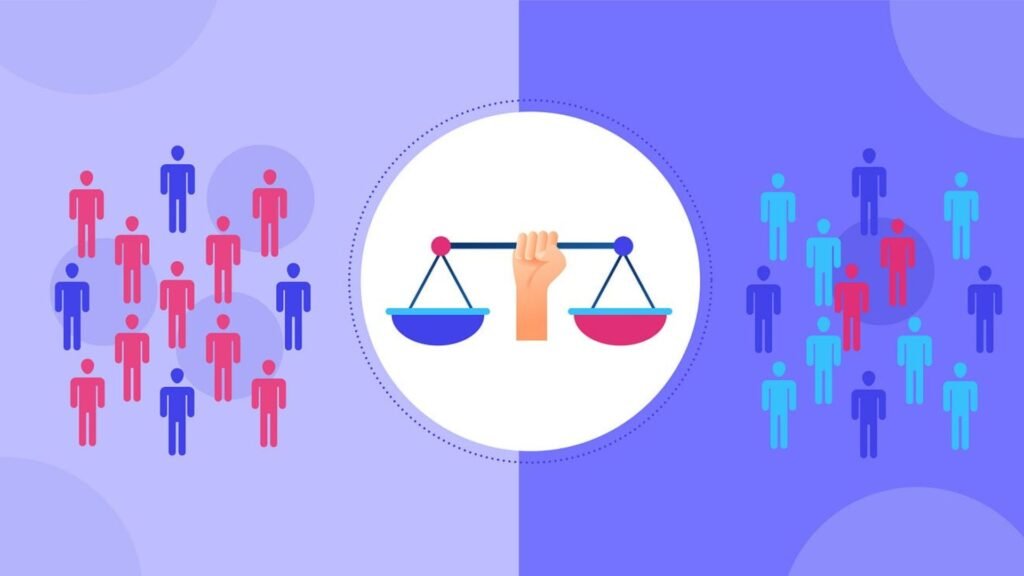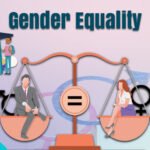Human Rights and Economic Inequality
Human rights and economic inequality are closely connected. Economic inequality means that wealth and resources are not shared equally among people. This can impact how well people can enjoy their human rights. In this blog post, we will discuss how economic inequality affects human rights, why it is a significant issue, and what steps can be taken to reduce this gap.

How Economic Inequality Affects Human Rights
Human rights and economic inequality are intertwined because when resources are not evenly distributed, it can prevent people from enjoying their basic rights. Here’s how economic inequality impacts human rights:
1. Access to Essential Services
- Healthcare: Economic inequality often means that poorer people have less access to quality healthcare. This can lead to worse health outcomes and fewer opportunities to live a healthy life. For example, individuals with low income may not afford necessary treatments or medicines, affecting their right to health.
- Education: When economic resources are unevenly distributed, children from low-income families might not have the same educational opportunities as those from wealthier families. Education is a fundamental human right, and without equal access, the future prospects for these children can be limited.
2. Living Conditions
- Housing: Economic inequality can lead to poor housing conditions for those with lower incomes. People may live in unsafe or overcrowded environments, which can affect their overall quality of life and their right to a safe and adequate living environment.
- Nutrition: Limited economic resources can impact access to sufficient and nutritious food. Poor nutrition affects health and development, further exacerbating the gap between different income groups.
Why Addressing Economic Inequality is Important for Human Rights
Human rights and economic inequality are critical issues that need to be addressed together. Here’s why tackling economic inequality is essential for improving human rights:
1. Promoting Fairness and Equity
- Equal Opportunity: Reducing economic inequality helps ensure that everyone has the same opportunities to succeed. When wealth is distributed more fairly, it can lead to better access to education, healthcare, and other essential services for all people, regardless of their economic status.
- Social Justice: Addressing economic inequality promotes social justice by making sure that everyone can enjoy their rights equally. This means fighting against discrimination and ensuring that no one is unfairly disadvantaged because of their economic situation.
2. Improving Social Stability
- Reducing Conflict: High levels of economic inequality can lead to social unrest and conflict. By addressing these disparities, societies can promote greater social stability and reduce the likelihood of conflicts arising from economic grievances.
- Enhancing Cohesion: Economic equality can lead to stronger social cohesion, as people from different economic backgrounds can work together and support one another. This strengthens communities and helps create a more inclusive society.
Steps to Address Economic Inequality and Improve Human Rights
To improve human rights and economic inequality, several steps can be taken to reduce the gap and ensure that everyone can enjoy their rights fully:
1. Policy and Legislation
- Progressive Taxation: Implementing progressive tax systems, where higher earners pay a larger share of their income, can help redistribute wealth more fairly. This can provide more resources for public services like education and healthcare.
- Social Safety Nets: Developing and expanding social safety nets, such as unemployment benefits, housing assistance, and food programs, can support those in need and reduce the impact of economic inequality on human rights.
2. Improving Access to Services
- Investing in Education: Increasing funding for education, particularly in underserved areas, can help ensure that all children have access to quality schooling. This can break the cycle of poverty and improve future opportunities for low-income families.
- Expanding Healthcare Access: Ensuring that everyone has access to affordable and quality healthcare is crucial. This includes investing in healthcare infrastructure and providing subsidies or free services to those who cannot afford them.
3. Promoting Economic Opportunities
- Job Creation: Creating job opportunities, particularly for marginalized groups, can help reduce economic inequality. This includes supporting small businesses, providing vocational training, and encouraging investment in low-income communities.
- Fair Wages: Ensuring that workers are paid fair wages is essential for reducing economic inequality. This includes implementing and enforcing minimum wage laws and promoting fair labor practices.
4. Community and Global Efforts
- Advocacy and Awareness: Raising awareness about the link between human rights and economic inequality can lead to greater public support for policies aimed at reducing disparities. Advocacy groups and campaigns can help highlight these issues and push for change.
- International Cooperation: Global cooperation is important in addressing economic inequality. International organizations, such as the United Nations, can help set standards and provide support to countries in reducing economic disparities and promoting human rights.
In exploring the intersection of human rights and economic inequality, we see how systemic disparities affect every facet of life. These structures often push marginalized communities toward precarious financial avenues.
For instance, the analysis of economic pressures might include examining industries like gaming, where informed choices are crucial. Readers looking for responsible guidance on this might consult resources like bestaubettingsites sports betting for balanced information.
Ultimately, advocating for economic justice requires understanding these complex, often overlooked, market influences on vulnerable populations.
Conclusion
In conclusion, human rights and economic inequality are deeply connected. Economic inequality affects how well people can enjoy their basic rights, such as access to healthcare, education, and safe living conditions.
Addressing economic inequality is crucial for improving human rights, promoting fairness, and enhancing social stability. By implementing effective policies, improving access to essential services, and promoting economic opportunities, we can work towards a more equitable and just society. Together, we can ensure that everyone has the chance to enjoy their rights and live a fulfilling life.



